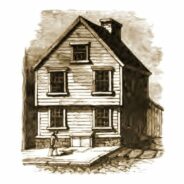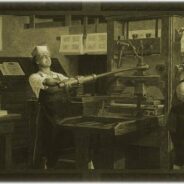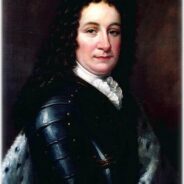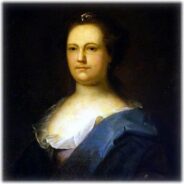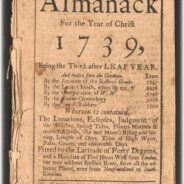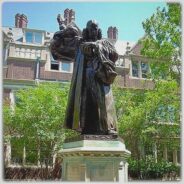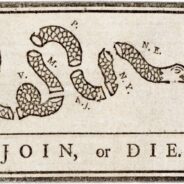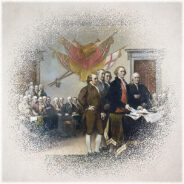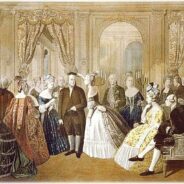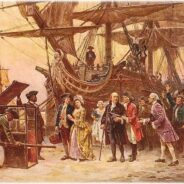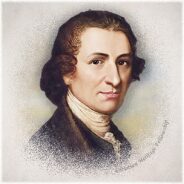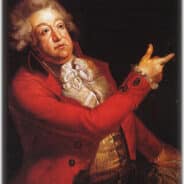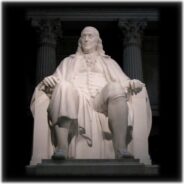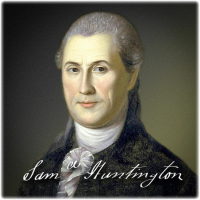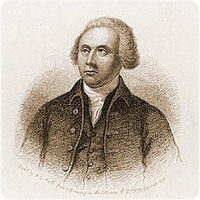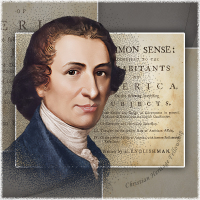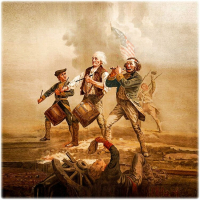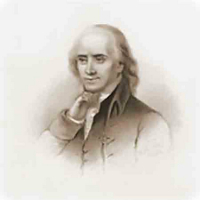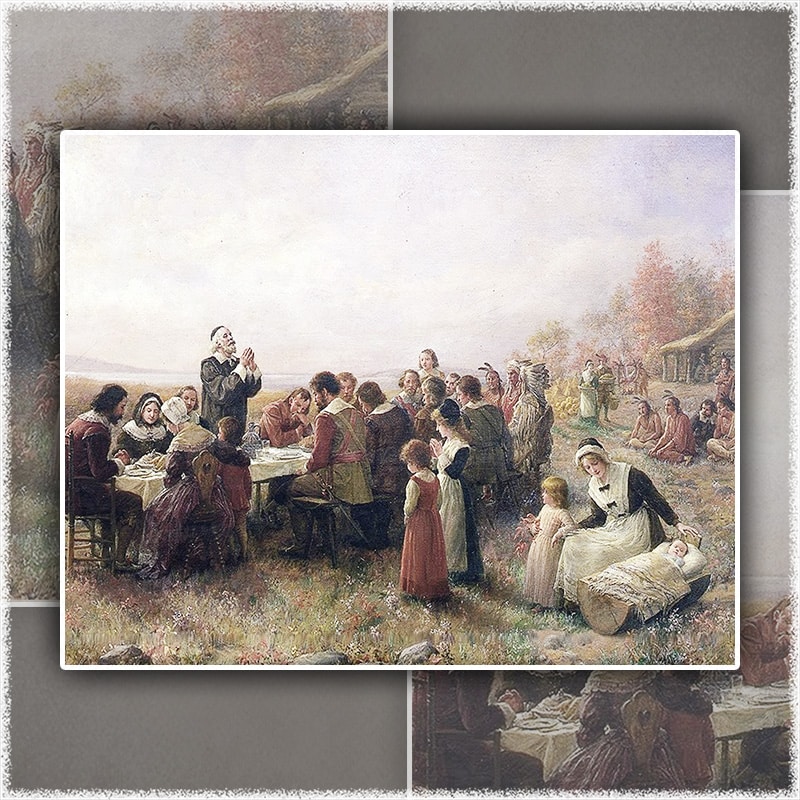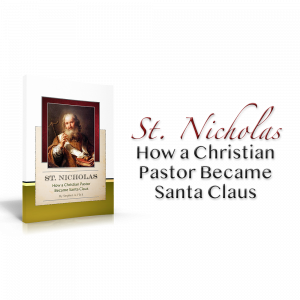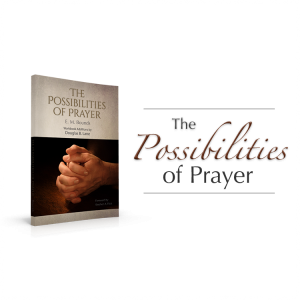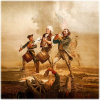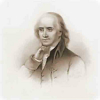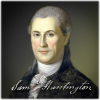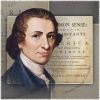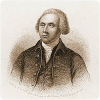Benjamin Franklin: Advocate of America’s Christian Heritage
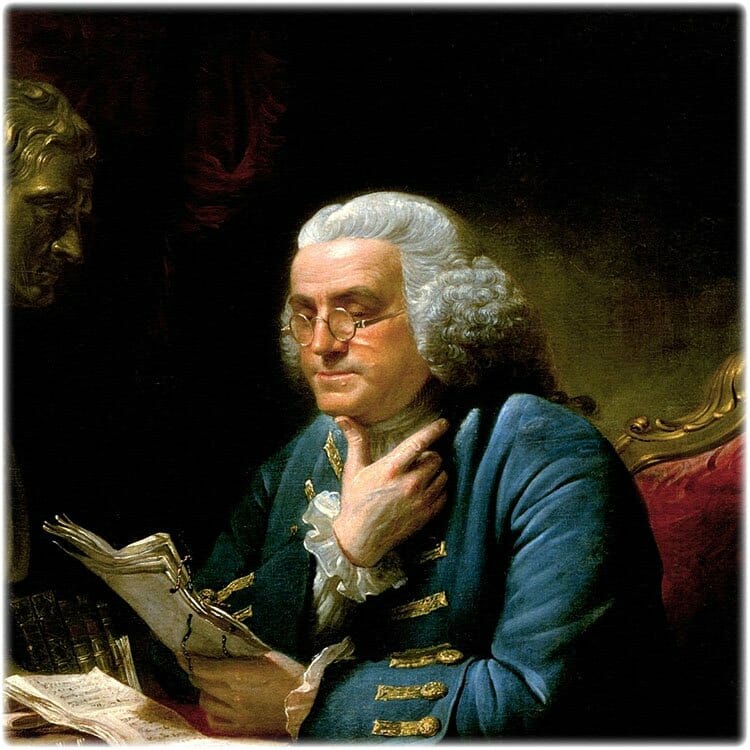
- 103
- 106shares
Without consideration being given to the person of Jesus Christ, it is fair to say that probably a greater man than Benjamin Franklin has never lived who has possessed greater analytical ability; often this trait has distinguished itself in true greatness by means of internal qualities rather than by means of brilliant external displays. In almost every particular characteristic of a man, Benjamin Franklin presented a model of excellence of the highest degree.[1]
Article Contents
The subject addressed in this article is discussed at greater length in America's Founding Fathers and the Bible. Christian Heritage Fellowship would be honored to work with individuals, businesses, churches, institutions, or organizations to help communicate the truth concerning the positive influence of the Christian faith by providing bulk pricing: Please contact us here... To purchase a limited quantity of this publication, please click: Purchase here...
Benjamin Franklin was born on Milk Street in Boston, Massachusetts, on the seventeenth day of January 1706 and baptized at Old South Meeting House. His father, Josiah Franklin, was a true Puritan and immigrated to America from England in 1682. Soon afterward, he married Miss Abiah Folger, a native of Boston. In all, seventeen children were born to Josiah. Being neither a mechanic nor farmer, Josiah Franklin turned his attention to the business of a soap-boiler and tallow-chandler, which was his occupation for life.
Josiah and Abiah Franklin wished Benjamin to become a minister of the gospel, and they began to educate him with that goal in mind, but their meager resources could not adequately supply for his preparation for the ministry, so their goal was abandoned. He attended the Boston Latin School for a few years, and then was taken into the service of his father when Ben was only ten. The business did not suit the boy, and he was entered, on probation, with a cutler. The expense for his admission to apprenticeship was too high and was forced to abandon this purpose as well. At that time, apprentices did not receive any pay for their services, but were obligated to pay a bonus, or fee, for the privilege of becoming an apprentice.
At the age of twelve, he became an apprentice to his older brother, James, who taught Ben the printing trade. In this trade, he continued until he became very proficient. All the while, he was remarkably studious, seldom spending an hour away from his books in idle amusement. When the relationship with his brother began to deteriorate, he broke the expectations of his apprenticeship, decided to run away, and in doing so became a fugitive.
He boarded a ship in the Boston harbor bound for New York. In that city, he was unable to find employment and set out on foot to Philadelphia, where he arrived on a Sunday morning. It is said that his first appearance in Philadelphia attracted considerable attention in the streets. With his extra clothing in his pockets and a loaf of bread under each arm, he wandered about Philadelphia until he came to a Quaker meetinghouse. Entering, he sat down, fell asleep, and slept soundly until morning worship had ended. After being awakened by one of the members of the congregation, he then sought another place of rest. He was then only seventeen, friendless and alone, with only a single dollar in his pocket. He soon found employment setting type in one of the two printing establishments then in Philadelphia. Because of his diligence and studious habits, he was quickly noticed and esteemed by his employers.
In a letter to a friend in New Castle, Delaware, Franklin graphically described his journey from Boston to Philadelphia. A copy of this letter made its way into the hands of the Governor of Pennsylvania, Sir William Keith, who invited young Benjamin to his mansion. A friendship arose from the first meeting, and the Governor encouraged Ben to establish his own business and offered his support. The business plan was rather extensive, and involved making a trip to England for materials. Franklin went to London, but found the promised support of Sir William Keith of little or no support. Forced to provide for himself, Ben obtained employment as a journeyman printer in one of the important businesses there. His industry, studious spirit, punctuality, and frugality, soon won him a number of friends. To his detriment, he came under the influence of some irreligious infidels while he was in London, among whom was Lord Mandeville. Under their influence, his mind was tainted with deism, which he advocated in a pamphlet that he published. Later in life, he regretted having written it and candidly condemned it. Though he lamented the content of this pamphlet, the influence of these infidels was to forever change his views concerning Jesus Christ.
With what he had saved from his earnings, Franklin resolved to take a trip to the Continent, but just before he departed, he received an offer from a merchant friend who was about to sail for America to accompany him as a clerk. He accepted it and embarked for home in July 1726.
At his new position at Philadelphia, Franklin enjoyed the prospect of prosperity and wealth, but heavy clouds of disappointment soon obscured his bright prospects. His friend died, and once more Franklin became a journeyman printer with his former employer. In a short time, he formed a partnership with another printer, and began business in Philadelphia, where his character, habits, and talents, soon gained him warm friends, public confidence, and a successful business.
Before traveling to England, he had sought to marry Deborah Read, the daughter of the family in whose house he was boarding, but Deborah's mother did not think it wise. While Franklin was away in England, Deborah married John Rogers, who shortly after their marriage avoided his debts and prosecution by fleeing to Barbados with her dowry, leaving Deborah behind. With the fate of Rodger unknown, Deborah was not free to remarry, but upon his return from England, Franklin's relation to Deborah was renewed and they entered into a common-law marriage on September 1, 1730. It may accurately be stated that because of his own indiscretion, Franklin suffered greatly because of this era of his life. It was not the example of his Puritan father that Franklin followed with respect to the issue of marriage, but the example of the infidels under whose influence he had fallen in London.
While liberals seek to libel Franklin's life on this subject, they always do so in excess. However, such attacks never need to be legitimate or credible to be accepted by the human heart that prefers treachery to truth. Having passed through this stage of his life, Franklin's writings reflect a contempt for irreligion and infidelity that had influenced him during his stay in England in his late teens. In his 1754 pamphlet providing information to Europeans about the American colonies titled, Information to Those Who Would Remove to America, Franklin wrote,
. . . in America, which must be a comfortable Consideration to Parents. To this may be truly added, that serious Religion, under its various Denominations, is not only tolerated, but respected and practiced. Atheism is unknown there; Infidelity rare and secret; so that persons may live to a great Age in that Country, without having their Piety shocked by meeting with either an Atheist or an Infidel. And the Divine Being seems to have manifested his Approbation of the mutual Forbearance and Kindness with which the different Sects treat each other, by the remarkable Prosperity with which He has been pleased to favor the whole Country.[2]
So varied were the public and private labors of this great man, from this period of his life until his death, that the limits of our study will only permit a brief chronology.
In 1732, Franklin began his useful annual periodical, called Poor Richard's Almanac. It was widely circulated in the Colonies, and in England, and was translated into several languages of Europe. It continued until 1757. About the same time, he commenced a newspaper, which soon became the most popular one in the Colonies. By constant, persevering study, he acquired knowledge of the Latin, French, Spanish, and Italian languages. He started a literary club, called the Junto, and the books that they collected for their use formed the nucleus of the present extensive Philadelphia Library. He wrote many pamphlets containing essays upon popular subjects, which were avidly read, ensuring his popularity. His popularity was accompanied by an increase in his business, and within a few years, his financial circumstances greatly eased.
In 1734, he was appointed government printer for Pennsylvania, and in 1736 he received the appointment of Clerk of the General Assembly. The next year he was made postmaster of Philadelphia. The income from his business and these offices provided relief from constant financial pressure and afforded him the opportunity for pursuits and research into initiatives for the common good of the public. He organized fire companies in Philadelphia, the first on the Continent, and he devised means for paving the streets and lighting the city with gas. All military discipline in the Province had become entirely neglected, but Franklin saw the importance of a thorough knowledge of tactics, and he applied himself to the task of instruction. He initiated the "American Philosophical Society," the "Pennsylvania Hospital," and the "College of Pennsylvania," which following a merger, became the University of Pennsylvania in 1791. Throughout his public life, Franklin ardently believed that the Christian faith should be conspicuous in its influence. He composed the text for the cornerstone of the Pennsylvania Hospital, which was the first hospital in America. The text he composed for the cornerstone stated,
In the year of Christ, 1755...This building, by the bounty of the Government and of many private persons, was piously founded, for the relief of the sick and miserable. May the God of mercies bless the undertaking![3]
Concerning the College of Pennsylvania, over one third of the college-affiliated men who contributed to the efforts of the American Continental Congresses between September 4, 1774 and July 4, 1776 were associated with the College of Pennsylvania.[4] Education was a great concern to Franklin. His Christian philosophy of education that gave rise to the University of Pennsylvania was outlined by Franklin in his work, Proposals Relating to the Education of Youth in Pennsylvania. In it he wrote,
History will also afford the frequent opportunities of showing the necessity of a public religion, from its usefulness to the public; the advantage of a religious character among private persons... and the excellency of the Christian religion above all others, ancient or modern.[5]
The first building to house the College was constructed in 1740 for the purpose of housing the itinerant preaching ministry of well-known evangelist, George Whitefield. For this reason, a statue of Whitefield stands on the campus today. Franklin published the sermons of Rev. Whitefield and commented in his Autobiography concerning the positive influence of Whitefield had upon Philadelphia, saying,
It was wonderful to see the change soon made in the manners of our inhabitants. From being thoughtless or indifferent about religion, it seemed as if all the world were growing religious, so that one could not walk thro' the town in an evening without hearing psalms sung in different families of every street.[6]
In 1742, he published a treatise on the improvement of chimneys, and invented the celebrated stove that bears his name. This invention he gave to the public.
In 1741, he began the publication of the General Magazine and Historical Chronicle, for the British Plantations, which enjoyed a wide circulation. In 1744 he was elected a member of the Pennsylvania General Assembly and was annually re-elected for ten consecutive years. He had previously held the office of Justice of the Peace and Alderman of Philadelphia.
It was also about this time that he made some of his scientific discoveries that spread his fame worldwide. His attention was focused upon the subject of electricity as a result of some experiments that had been demonstrated by Europeans in Boston. Not only was he able to successfully repeat them all, but he was also drawn to investigate the nature and effects of electricity that resulted in the discovery of many astounding truths.
In 1753, both Harvard and Yale Universities awarded him honorary degrees, and he was appointed a commissioner to address matters related to the Indians at Carlisle. In 1754, he was selected to be a delegate from Pennsylvania to a conference of representatives of the Colonies that met at Albany to discuss the general defense and security against the French. At this conference, he proposed an admirable plan of confederation for the union of the Colonies. About this time, he was appointed deputy Postmaster General. He was also active in improving the military interests of Pennsylvania, and provided General Braddock the supplies necessary for his expedition against Fort Duquesne. Several years earlier when France and Spain were raiding the American colonies, Franklin raised Pennsylvania's first volunteer militia and sought to address the conflict spiritually by proposing a day of fasting and prayer, which was published in the Pennsylvania Gazette on December 12, 1747. He wrote:
We have...thought fit...to appoint...a Day of Fasting and Prayer, exhorting all, both Ministers and People...to join with one accord in the most humble and fervent supplications that Almighty God would mercifully interpose and still the rage of war among the nations and put a stop to the effusion of Christian blood.[7]
In 1757, Franklin was sent by the General Assembly of the Province to London as its counsel in a dispute with the governor. He managed the case as to obtain a favorable decision for the Assembly but remained a resident agent for the Colony in England for five years. During this period, he formed many valuable acquaintances. On his return, the General Assembly publicly expressed its gratitude to Franklin and the sum of twenty thousand dollars was presented to him as compensation for his important services.
In 1764, he was again sent to England as agent for the Colony of Pennsylvania upon business similar to that for which he was first sent. While in England, the Stamp Act was passed, evoking his loud and bold protest against it. His opinions had great weight there, and, having been appointed to represent the interests of several of the Colonies, the eyes of statesmen at home and abroad were turned anxiously to him, as the storm of the Revolution rapidly gathered in dark and threatening clouds. He labored assiduously to effect conciliation, and he did much to arrest for a long time the blow that finally severed the Colonies from the mother country. Having arrived at the conclusion that war was inevitable, he returned home in 1775, and was at once elected a delegate to the Continental Congress. He was re-elected in 1776, and was appointed to the Committee of Five to draft a Declaration of Independence; he voted for its adoption, and signed it with most of the other delegates on the second of August.
In September 1776, Franklin was appointed one of three commissioners to meet Lord Howe in conference on Staten Island, and hear his propositions for peace. Franklin had formed a personal acquaintance with Lord Howe while in England. At this conference, when his lordship expressed his kind feelings toward the Americans and his regret that they would not share in the protection of British power, Franklin told him plainly that he need not concern himself on their account as the Americans were fully able to take care of themselves. This attempt at conciliation proved fruitless, and hostilities soon followed. About this time a convention was called in Pennsylvania, for the purpose of organizing the state government, according to the recommendation of the Continental Congress. Franklin was chosen President and his wisdom was manifested in the Constitution that followed. Again, the Christian convictions of Franklin and the other delegates that helped prepare Pennsylvania's first constitution were plainly engrafted into the text. On September 28, 1776, Franklin signed this first constitution, Section 10 of which read as follows:
And each member, before he takes his seat, shall make and subscribe the following declaration, viz:
I do believe in one God, the creator and governor of the universe, the rewarder of the good and the punisher of the wicked. And I do acknowledge the Scriptures of the Old and New Testament to be given by Divine inspiration.
And no further or other religious test shall ever hereafter be required of any civil officer or magistrate in this State.
...
Passed in Convention the 28th day of September, 1776, and signed by their order.
BENJ. FRANKLIN, Prest.[8]
He was appointed by the Continental Congress as a commissioner to the Court of France to negotiate a treaty of alliance. Although then over seventy years of age, he accepted the appointment and sailed in October 1776. He was received with distinguished honors, and strong expressions of sympathy in behalf of his country were made. Yet, the French ministry was so cautious that it was not until after the news of the capture of Burgoyne had reached them (October 1777), and American prospects looked brighter, that they were willing to enter into formal negotiations. A treaty was finally achieved and was signed by Franklin and the French Minister in February 1778. America was recognized as an independent nation and the French government openly espoused her cause. Congress had invested Franklin with almost unlimited discretionary powers and his duties were very arduous and complex; yet, he discharged them with a fidelity and skill that excited the admiration of Europe. Finally persuaded by the military success of the new American States in their War of Independence, Great Britain finally yielded, and consented to negotiate a treaty of peace upon the basis of American independence, and on the third day of September 1783, Doctor Franklin and the other American representatives sent to the signing of the Paris Peace Treaty had the pleasure of signing a definitive treaty to that effect. It was on this occasion, that Doctor Franklin again put on a suit of clothes that ten years, on the occasion he was insulted before the English Privy Council, he declared he would never wear again until he had "signed England's degradation and America's independence."
Following the signing of the Treaty, Mr. Franklin asked permission of Congress to return home to his family, but he was retained there until the arrival of his successor, Thomas Jefferson, in 1785. Doctor Franklin had two children, a son and daughter. His son was a royal governor of New Jersey before the Revolution, but he broke with his father's political sympathy for America, and fled to England at the outbreak of the Revolution; here he died. His daughter married into the Bache family of Philadelphia, and her descendants were numbered among the first families of that city. His final return to America was received with every demonstration of joy and respect, not only from the most distinguished individuals, but also from nearly every public body in the country.
Despite his great age (eighty years), public life continued to lay claim his services, and he was appointed President of Pennsylvania, a position which he held three years. At the Constitutional Convention in 1787, he was a delegate from Pennsylvania, but this was the last public duty he was to perform. At a time when it appeared the Constitutional Convention would disband without success, Franklin rose on the Convention floor and addressed the chairman and his fellow delegates, saying:
In the beginning of the contest with Great Britain, when we were sensible of danger, we had daily prayer in this room for the divine protection. Our prayers, sir, were heard, and they were graciously answered. All of us who were engaged in the struggle must have observed frequent instances of a superintending Providence in our favor. To that kind Providence we owe this happy opportunity of consulting in peace on the means of establishing our future national felicity. And, have we now forgotten that powerful Friend [the eternal God] ? Or do we imagine that we no longer need his assistance? I have lived, sir, a long time, and the longer I live the more convincing proofs I see of this truth: that God governs in the affairs of men. And if a sparrow cannot fall to the ground without his notice, is it possible that an empire can rise without his aid? We have been assured, sir, in the sacred writings that, except the Lord build the house, they labor in vain that build it. I firmly believe this, and I also believe that without his concurring aid we shall succeed, in this political building, no better than the builders of Babel.[9]
In 1794, Thomas Paine published his infamous work, Age of Reason, in which he elevated "free thought" and the principles of deism while he attacked Christianity and the providence of God in the world. He had sent a manuscript copy of this work to Mr. Franklin before Franklin's death. After reading it, Mr. Franklin responded, urging him not to publish it. As he closed his letter to Paine, Franklin wrote,
Think how great a portion of mankind consists of weak and ignorant men and women, and of inexperienced, inconsiderate youth of both sexes, who have need of the motives of religion to restrain them from vice, to support their virtue, and retain them in the practice of it till it becomes habitual, which is the great point for its security. And perhaps you are indebted to her originally, that is, to your religious education, for the habits of virtue upon which you now justly value yourself. You might easily display your excellent talents of reasoning upon a less hazardous subject, and thereby obtain a rank with our most distinguished authors. For among us it is not necessary, as among the Hottentots, that a youth, to be raised into the company of men, should prove his manhood by beating his mother.
I would advise you, therefore, not to attempt unchaining the tiger [or publish this work], but to burn this piece before it is seen by any other person; whereby you will save yourself a great deal of mortification by the enemies it may raise against you, and perhaps a good deal of regret and repentance. If men are so wicked with religion, what would they be if without it. I intend this letter itself as a proof of my friendship, and therefore add no professions to it; but subscribe simply yours,
B. Franklin[10]
Though influenced in his late teens by deism, infidelity, and irreligion, Benjamin Franklin had come to realize it only produced heartache and misery. In world history, where have agnosticism, atheism, deism, and other forms of irreligion produced wellbeing and a truly progressive society? Nowhere!
Having suffered many years with afflictions, his life ended on the seventeenth day of April 1790, at the age of eighty-four. A large crowd of mourners followed his body to the grave, and the nation lamented his passing. Congress invited the United States to mourn his passing for a period of thirty days. In France, and indeed throughout Europe, the news of his death was received with profound grief. In the National Assembly of France, the eloquent Honoré Mirabeau announced his death, and in a brief but brilliant eulogy spoke these sobering words: "Franklin is dead!" A profound silence fell upon the hall, and then he continued, saying:
The genius which gave freedom to America, and scattered torrents of light upon Europe, is returned to the bosom of the Divinity! The sage, whom two worlds claim, the man disputed by the history of the sciences, and the history of empires, holds, most undoubtedly, an elevated rank among the human species. Political cabinets have too long notified the death of those who were never great but in their funeral orations; the etiquette of courts have but too long sanctioned hypocritical grief. Nations ought only to mourn for their benefactors; the representatives of freemen ought never to recommend any other than the heroes of humanity to their homage. . . .
Antiquity would have elevated altars to that mortal, who, for the advantage of the human race, embracing both heaven and earth in his vast and extensive mind, knew how to subdue thunder and tyranny! Enlightened and free Europe at least owes its remembrance and its regrets, to one of the greatest men who has ever served the cause of philosophy and of liberty.[11]
Benjamin Franklin was truly a great man. Having been raised in a Puritan home, it appears that he too soon left the influence of his parents and was subsequently influenced by infidelity and irreligion. Given the proximity of these beliefs to the birth of his illegitimate son and common-law marriage, there can be no doubt that, like other infidels, these believes brought about this unfortunate chapter in his life. However, the grace of God had permitted Mr. Franklin to see the error of his ways the more mature he became. His call to prayer from the floor of the Constitutional Convention can leave no doubt of this fact. While no one should seek to make Dr. Franklin a Christian, let none doubt the clear biblical teachings he did advocate.
For decades, liberals and secular historical revisionists have been attempting to defame the characters of America's Founding Fathers. This attack has been ongoing since the 1920s and 30s in an attempt to ultimately defame the nation's character. Throughout history, conquering nations have rewritten the histories of the nations they have conquered, seeking to destroy the memory of previous greatness. By defaming America's Founding Fathers, the irreligious and secular among us seek to destroy America!
May God grant the courage and fortitude to this and succeeding generations to cling to the Christian heritage of the greatest nation the world has ever known!
[1] Revised and expanded by Dr. Stephen Flick from B. J. Lossing, Signers of the Declaration of Independence (New York: Geo. F. Cooledge, 1848), 104-111.
[2] "Benjamin Franklin, Information to Those Who Would Remove to America," The Founders' Constitution (http://press-pubs.uchicago.edu/founders/documents/v1ch15s27.html, April 17, 2015).
[3] "American Minute with Bill Federer," April 17, 2015.
[4] "Benjamin Franklin," Wikipedia (http://en.wikipedia.org/wiki/Benjamin_Franklin, April 16, 2015).
[5] "American Minute with Bill Federer," April 17, 2015.
[6] Franklin, Benjamin. The autobiography of Benjamin Franklin. Boston, etc.,: Houghton, Mifflin and co., 1888., 131.
[7] Quoted in "American Minute with Bill Federer," April 17, 2015.
[8] Lillian Goldman Law Library, "Constitution of Pennsylvania - September 28, 1776," (http://avalon.law.yale.edu/18th_century/washing.asp.
[9] Quoted in Galloway, Charles B. Christianity and the American Commonwealth: The Influence of Christianity in Making This Nation. Reprint ed. Powder Springs, Georgia: American Vision, 2005., 125.
[10] Jared Sparks, The Works of Benjamin Franklin, (Boston: Tappan, Whittemore, and Mason, 1840), 10:281-282; quoted in "Benjamin Franklin's letter to Thomas Paine," WallBuilders (http://www.wallbuilders.com/libissuesarticles.asp?id=58, April 15, 2015).
[11] Quoted in Lossing, Signers of the Declaration of Independence, 111.
Benjamin Franklin
Benjamin Franklin
Benjamin Franklin
Benjamin Franklin
Benjamin Franklin
Benjamin Franklin
Benjamin Franklin
Benjamin Franklin
Benjamin Franklin
Benjamin Franklin
Benjamin Franklin
Benjamin Franklin
Benjamin Franklin
Benjamin Franklin
Benjamin Franklin
Benjamin Franklin
Benjamin Franklin
Benjamin Franklin
Benjamin Franklin
Benjamin Franklin
Benjamin Franklin
Benjamin Franklin
Benjamin Franklin
Benjamin Franklin
Benjamin Franklin
Benjamin Franklin
Benjamin Franklin
Benjamin Franklin
Benjamin Franklin
Benjamin Franklin
Benjamin Franklin
Benjamin Franklin
Benjamin Franklin
Benjamin Franklin
Benjamin Franklin
Benjamin Franklin
Benjamin Franklin
Benjamin Franklin
- 103
- 106shares

